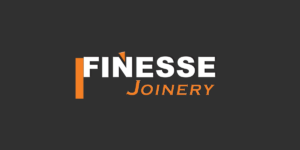The Scope of SaaS Application Development
The Scope of SaaS Application Development
Introduction
SaaS application development is revolutionizing industries by providing innovative, scalable, and cost-effective software solutions. As businesses shift towards cloud-based operations, the scope of SaaS application development is expanding exponentially. This article delves into the wide-ranging potential and impact of SaaS in today’s digital landscape.
Growth of SaaS in Global Markets
The global SaaS market has witnessed unprecedented growth in recent years. Businesses of all sizes are adopting SaaS solutions to enhance efficiency, reduce costs, and improve flexibility. With projections indicating continued growth, SaaS is expected to dominate the software industry in the coming decade.
Emerging markets in Asia, Africa, and South America are also embracing SaaS technologies. This widespread adoption highlights the global appeal and relevance of SaaS application development.
Key Industries Leveraging SaaS Applications
Healthcare
In the healthcare industry, SaaS applications are transforming patient management, data storage, and telemedicine. Tools like electronic health records (EHRs) and online consultation platforms enable healthcare providers to deliver efficient and personalized services.
Education
Educational institutions are leveraging SaaS platforms for e-learning, course management, and student engagement. Applications like Zoom and Google Classroom have become integral to modern education, especially in remote learning scenarios.
Retail and E-Commerce
SaaS applications are essential for managing inventory, customer relationships, and payment processing in retail and e-commerce. Platforms like Shopify and BigCommerce empower businesses to create and manage online stores effortlessly.
Finance
Financial institutions rely on SaaS for secure transaction processing, compliance management, and data analytics. Applications like QuickBooks and Xero provide seamless accounting solutions for businesses of all sizes.
Real Estate
SaaS tools are widely used in real estate for property management, client communication, and transaction tracking. These applications help streamline operations and enhance customer satisfaction.
Technological Advancements Driving SaaS
Artificial Intelligence and Machine Learning
AI and ML are enhancing SaaS applications by enabling predictive analytics, personalized user experiences, and automation. These technologies help businesses make data-driven decisions and improve efficiency.
IoT Integration
The Internet of Things (IoT) is expanding the scope of SaaS by connecting devices and enabling real-time data sharing. This integration is particularly beneficial in industries like manufacturing, logistics, and healthcare.
Blockchain Technology
Blockchain is being incorporated into SaaS platforms to enhance security and transparency. It’s particularly useful in finance, supply chain management, and legal industries.
Mobile-First Approach
As mobile usage continues to rise, SaaS applications are increasingly designed with a mobile-first approach. This ensures accessibility and usability across devices, catering to the needs of on-the-go users.
Opportunities for Businesses
Startups and Small Businesses
SaaS applications provide startups and small businesses with affordable tools to compete with larger enterprises. From CRM software to project management tools, SaaS levels the playing field by offering accessible and scalable solutions.
Enterprise-Level Solutions
For large organizations, SaaS applications support complex processes such as supply chain management, big data analytics, and enterprise resource planning (ERP). These solutions drive innovation and efficiency at scale.
Global Reach
SaaS applications enable businesses to reach global markets without significant infrastructure investments. Cloud-based solutions ensure seamless operations across different regions, opening up new growth opportunities.
Challenges and Future Potential
Security Concerns
While SaaS providers implement robust security measures, data breaches and cyberattacks remain a concern. Continued advancements in encryption and compliance standards will be critical in addressing these challenges.
Customization and Integration
Businesses often require customized solutions to meet specific needs. SaaS providers are increasingly focusing on offering flexible and easily integrable applications to cater to diverse requirements.
Emerging Technologies
The integration of emerging technologies like quantum computing and 5G networks is set to redefine the scope of SaaS application development. These advancements will unlock new possibilities for innovation and efficiency.
Environmental Impact of SaaS
SaaS application development contributes to sustainability by reducing the need for physical infrastructure. Cloud-based solutions minimize energy consumption and electronic waste, aligning with global efforts to combat climate change.
Conclusion
The scope of SaaS application development is vast and continually evolving. From empowering startups to transforming global enterprises, SaaS plays a pivotal role in modern business operations. With advancements in technology and growing adoption across industries, the potential of SaaS is boundless.














Post Comment